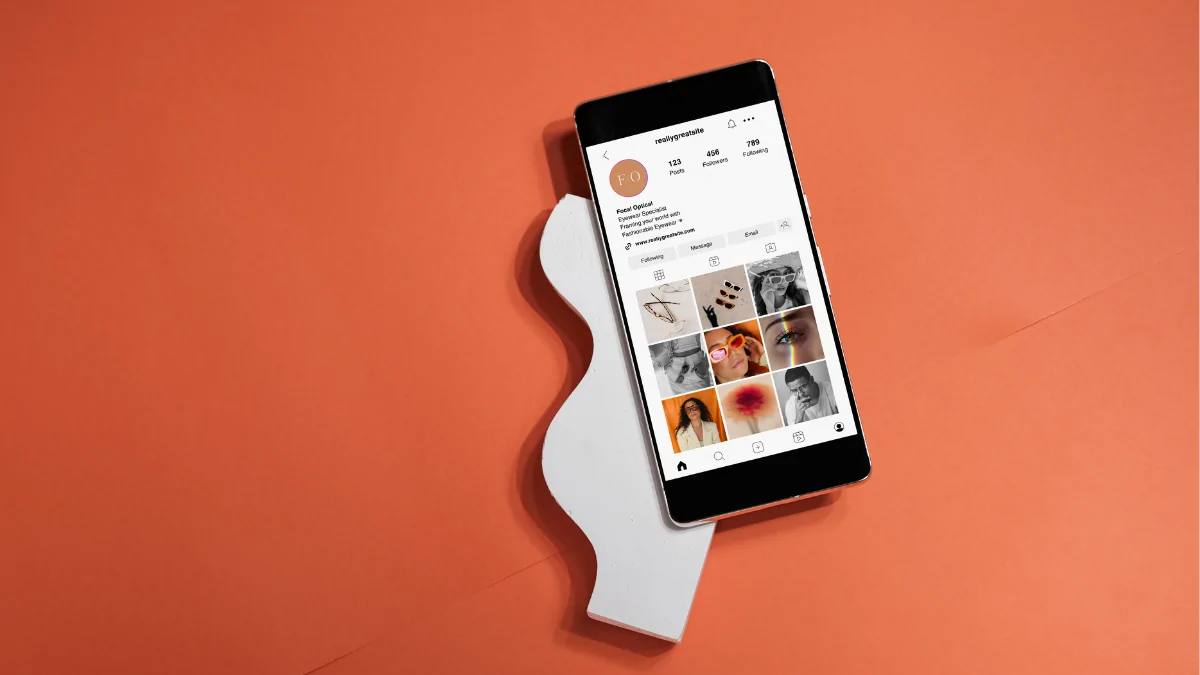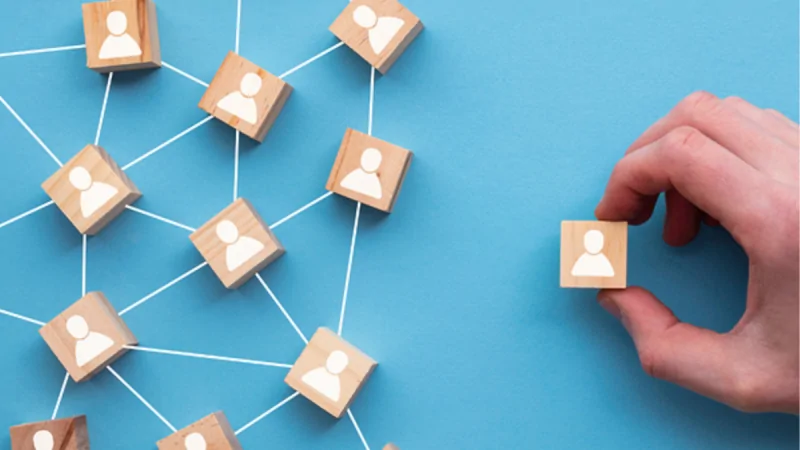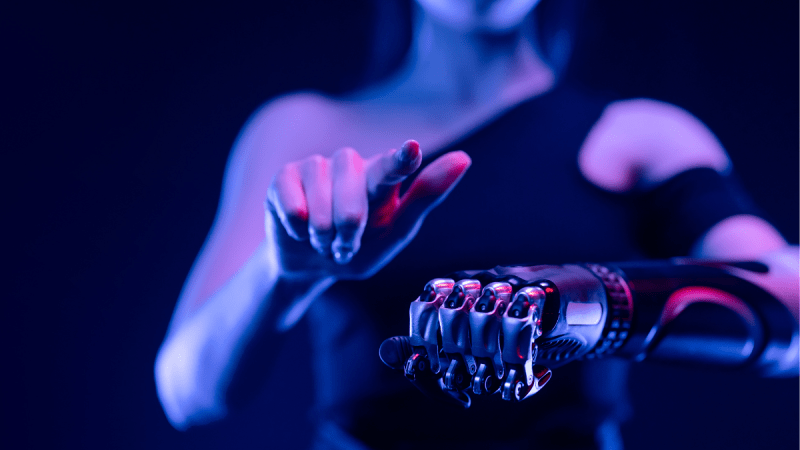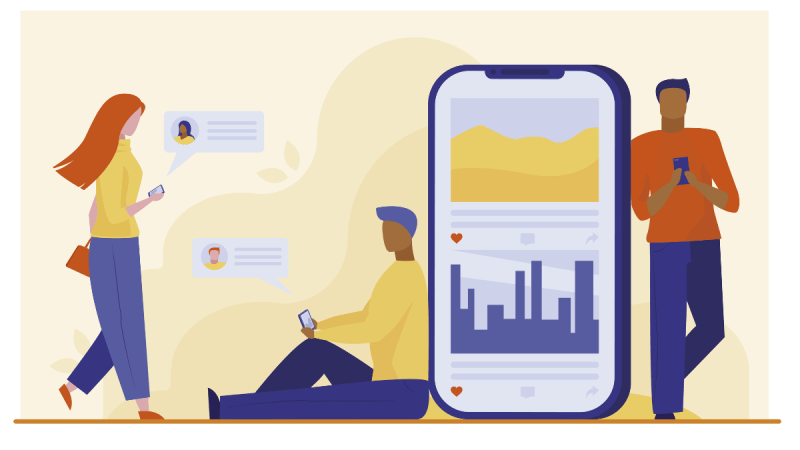The Psychology Of Social Media Audience Mindset : Understanding How Audiences Think

The Psychology Of Social Media Audience Mindset: Understanding How Audiences Think
Introduction:
Ever started to take a “quick scroll” and then lost track of the time for hours? Have you ever felt a little excited with a quick ping of notification as your posts get their first likes? If you nodded your head yes and thought that’s me, you are not alone! Social media leverages our basic emotions and our basic human needs and subtly influences our thoughts, feelings, and connections.
Once you recognize the changes and patterns in your behavior, you will start to see the little cues and triggers everywhere, sometimes even seemingly right in front of you. If you’re curious to find the reasons behind why you (and everybody else) check your phone to find out more social media connections, stay right with me. You recognize some similar behaviors in yourself and maybe even your friends. Let’s examine a little more in-depth what happens behind those likes and shares and fill our screens with infinite scrolls!
Why Social Media Hooks You In
Social media apps are designed to get your attention and keep you at the top of mind. They take simple actions and make them habitual actions, and trigger a reward-based cycle. Every like, scroll, or notification creates a level of curiosity, turning the post into an emotive response.
You might open an app or social platform out of sheer boredom or even just to see who sent you messages. The app holds your attention with the surprise and feedback offered through social engagement. More importantly, it is more than just wasting your time—we are being triggered on an emotional level that uses our most base levels of psychology, and they are doing it quite well!
The Role of Instant Gratification
Think about the last time you received a new like, comment, or share on a social platform. Think deeper about what it feels like…that small rush? Like a burst of excitement or a quick brain reward. Social media allows us to experience what researchers have identified as “instant gratification.” In response to our actions, we receive immediate feedback from followers and friends, and in return, our brain and body respond quickly!
Likes and comments give your brain a treat. It feels good, so you do it habitually. You reach for your phone over and over again in pursuit of that pleasure. It gets wired into your routines and habits.
FOMO and Social Comparison
Scrolling through your updates, you come across friends who are out doing something great or old classmates who just graduated and got a permanent job. This may generate some FOMO. FOMO (fear of missing out) is that uncomfortable itch you get in the back of your head.
You compare your life with the things you see online— even though you know people only show the best version of themselves— and FOMO steers you back to your feed, checking the notifications to see what you might be missing or measuring up.
It makes you avoid looking away.
Feedback Loops and Reward Systems
Many platforms use ideas from the slot machine playbook. You have no idea when you might come across something amazing or crushingly boring, so you just keep checking. Notifications, new messages, and trending posts don’t have a specific schedule to them.
Dopamine is released in your brain when you experience randomness and odds.
Unpredictability, randomness, and what we feel is a reward sometimes push your brain into wanting more. Sometimes you win (viral post or a funny meme), sometimes you don’t. But the lack of knowing and unpredictability keep you engaged for “just one more scroll.”
Doomscrolling And The False Sense Of Control
Have you ever been scrolling past bedtime and convinced yourself that you should do “one last post”? At this point, we have all been there – it’s called doomscrolling, consuming a massive amount of negative indebted negative/or emotionally engaging content. Doomscrolling gives you a false sense of either increased knowledge or being “in the loop” – it gives you something to feel anxious about and keeps your brain humming in a cycle of emotional arousal.
And the effort – Like everything else – the try to exert control around uncertainty (whether news cycles, personal stress, or stresses we can track) has the opposite effect, and does nothing but heighten anxiety. Social media works to bring you into that cycle by promoting and Mesa you get serve it can serve you claims or (*Hello), 16-)its daily, if not second, clickbait news/entertainment.
Personal Validation And Self-Worth
For a large portion of its users, social media is a self-worth mirror. If their posts earn Likes, or Shares, or TikTok comments, that direct measurable validation can take precedent in weighing how they see or feel obediently after their performance. The immediate feedback loop Temps creates anxiety in tying completely Mona to one’s self-categorization. Posts that flop cause self-doubt or negative self-assessment.
The platforms’ embrace their bolstered expectation of validation-seeking behavior is the immediate feedback loop from a structural perspective, and compels – subconsciously – creators to be “better” and redirect the trend dynamically just to break back that desire and need to validate what is increasingly going viral.
Instagram: Psychological Hook Why It Gets You Addicted
Instagram brings fast affirmation. Each like or view, in particular, on reels sends out a minor dose of dopamine, thus forming a circle of the user wanting to receive more attention. Specifically, Reels views are an indication of popularity, and they can make the users feel noticed at once. This cycle makes content creators keep on posting to get quick satisfaction.
Comparisons and FOMO
On Instagram, everyone reveals their best self in fashionable vacations, filtered photos, and success stories. This results in social comparison and FOMO. This will leave you emotionally uncomfortable when you notice others living a supposedly better life, motivating you to scroll to find more or to post some more in search of reassurance.
Explore Page Echo Chambers
The Instagram algorithm personalizes your Explore page based on what you follow and like. Gradually, you are exposed to the same views, and your interests are supported, and you are less likely to see any other content. This echo chamber helps to prove your prior ideas and operates by making you act, albeit softly.
TikTok: Engineered to produce Dopamine and Emotional Triggers
TikTok lives off chaos. You can never guess whether the next video will make you laugh, cry, or rather use the option of saving it. That unpredictability makes your brain stay active and produce dopamine, making you feel you should scroll again. There is also an added emotional dimension of comment feedback, in particular, receiving positive comments on TikTok, which makes you want to go with them again and again.
Viral is one of the greatest attractions of TikTok. Even one post can become hugely popular overnight, being viewed by thousands of Reels (Instagram) and receiving a bunch of TikTok comments. These remarks are fast social evidence, and makers feel worthwhile and noticed. The higher the engagement, the more likely you are to seek this high once more.
Fomo By Rapid Fashion Trends
TikTok trends are extremely dynamic. The fear of missing new sounds or challenges makes creators feel irrelevant very easily. A lot of its users look through TikTok posts to know what people say about a trend, whether it is still popular or if it is already old. This fear of missing out is brought about by the pressure to stay up to date and tether the users to their feeds.
Facebook: Colony and Emotional Backup
Facebook is all about those uncertainties- will anyone like what you have posted? Write a comment on your photo. Such uncertainty prompts you to check in as many times as possible. Every reminder creates a tiny incentive by making you stick to such a habit as logging in just once more.
Motivational Involvement To Groups And Comments
A lot of users have gotten emotional protection and a sense of belonging in Facebook groups. Reactions and remarks oriented in such communities approve of your ideas, thus you feel heard. Nevertheless, impulsive remarks, particularly in debates, may increase stress and also polarize opinions.
Nostalgia And Memory Triggers
It is not a bad thing that On This Day memories are cute; they are also psychological anchors. Facebook harks back to nostalgic times, which draws emotions; older posts make the Facebook user nostalgic and, hence, comfortable with the site. Such a little pull keeps people attached to the platform emotionally.
Conclusion
Social media taps into the deepest recesses of how your mind works, which is why they are so addictive. These platforms offer rewards in terms of feedback, with an added curiosity factor from the unknown decision-making when scrolling. They can even affect the way that you see the world. You can get caught in this cycle without realizing it, simply because of the lost time and habitual behavior.
If you find yourself reaching for your phone out of habit or feel strange post-scrolling, take a moment to stop and check in before you engage in your next scrolling adventure. Ask yourself what you expected from the experience: pleasure, connection, or simply something to do.
Real change starts with awareness. The next time that you open an app, see if you notice the triggers and feelings that influence your choices. In addition, by understanding the psychology of social media, you will identify patterns, not just actions, make informed decisions, and even have a bit more influence over your online experience.
AUTHOR BIO
Ella Jackson is a social media expert and writer who works at Cheaplikesfollowers.com. She is a regular contributor to well-established Social media blogs, and she has been in social media marketing for two years.






